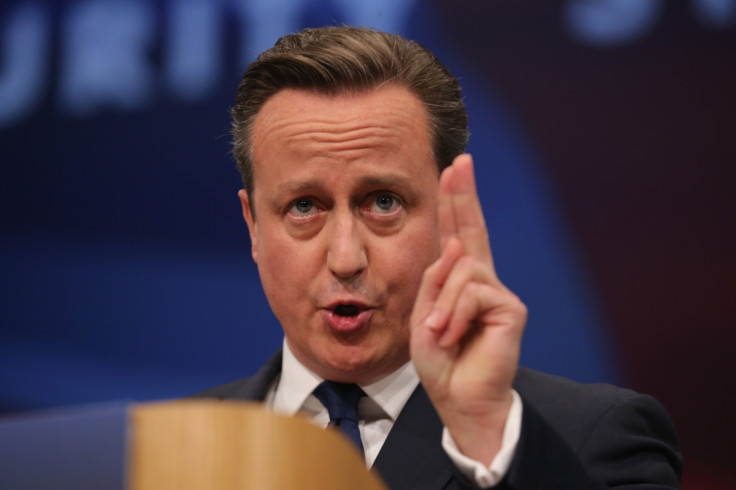Poverty pay: The political elite says this is as good as it gets

Not so long ago support for a minimum wage, much like nationalisation of the railways and unilateral disarmament, marked you out as a state socialist. Today the Living Wage is the new common sense. While there is some opposition from employers, it is striking that the government and the bulk of the political establishment only quibble over the level at which it should be set.
It currently stands at a recommended £7.85 an hour, or £9.15 an hour in London. The National Living Wage, to be introduced by the government in April, will be a little less at £7.20 for over-25s rising to £9 by 2020.
While no-one had heard of zero-hours contracts until recently, taking a laissez-faire or state interventionist stance on the labour market would once have had you fall either side of a clear political divide too. No longer. Today, all are agreed that what amounts to casual working needs more or less regulating.
"Those exclusive zero-hours contracts that left people unable to build decent lives for themselves – we will scrap them." That wasn't Red Ed or Corbynomics: that's David Cameron.
While the critics might want him to go further and ban them outright there is a consensus. The main political parties are opposed to the worst excesses of 'poverty pay', and agree that something must be done about it. But is this really such a good thing? It seems to me that this statist meeting of minds is shaped less by the fair-mindedness of the political elite than by the self-imposed limits of our anaemic political culture.
Easy interventions

Clueless about solving the bigger problems, and unable to inspire anything but contempt, politicians desperately jostle around for easy headline-grabbing interventions like these. For instance, Culture Secretary John Whittingdale has told Premier League football clubs they should pay their staff a Living Wage. "It would," he says, "be difficult to argue they can't afford it".
Meanwhile, Costa has announced it will pay its staff a Living Wage slightly more generous than the national one. But why stop there? Living standards, especially for the poorest, have plummeted in recent times as wages have fallen and prices have risen. Is this really the best they can do?
It is a depressing sign of the times that such gesture politics can be spun as good news. In the absence of capitalist dynamism to raise people's standard of living, this is all there is. There is no appeal to trickle-down economics anymore: an optimistic if not unreasonable belief that we all benefit as the economy grows.
Baristas are supposed to be happy with their new minimum (sorry, living) wage rather than imagine a world in which they might live like barristers or millionaire footballers. Instead of ambitions for more and better, the adolescent cry of "it's not fair!" can be heard.
What matters more is that the entire political elite, convinced that the poorest sections of the working class need protecting from the inequities of a flexible labour market, are telling us that this is as good as it gets.
In a recent poll of students by job site Glassdoor, a third thought zero hours contracts were exploitative, a quarter wanted them banned, and over a third of those offered one turned it down.
As Diarmuid Russell at Glassdoor said: "These findings are intriguing, given these contracts allow students to move in and out of the job throughout the year, and potentially pick up hours which fit around studies and holidays."
Quite - you might expect those who never tire of telling us about their spiralling debts to be a little less picky.
It isn't just students convinced of their own victimhood. A chef who used to work for Hugh Fearnley-Whittingstall was recently in court having being apprehended by police at a drug dealer's house. According to his defence lawyer 'it wasn't him what did it' - it was the zero-hours contract he signed with River Cottage. "As a result [he] was suffering from depression and sadly relapsed into heroin use," it was claimed.
So as well as the notion that the best the poorest can hope for is to be a bit less badly off, is the patronising idea that some of us (chefs and students included) are so fragile that we couldn't cope with a zero-hours contract anyway. While critics rightly argue that such employers are subsidised by us all in the end as those who work for them have to rely on welfare top-ups to their meagre incomes, this is only part of the problem with the official narrative on poverty pay.
What matters more is that the entire political elite, convinced that the poorest sections of the working class need protecting from the inequities of a flexible labour market, are telling us that this is as good as it gets.
Dave Clements is a civil servant and social policy writer based in London. He is one of the organisers of the Battle of Ideas festival, which debates "Should we wage war on poverty pay?" on 18 October. IBTimes UK is a media partner for the festival.
© Copyright IBTimes 2024. All rights reserved.






